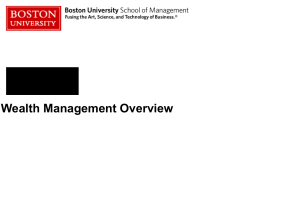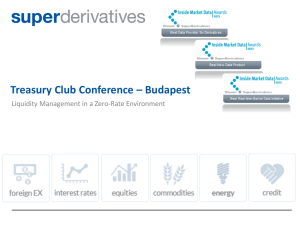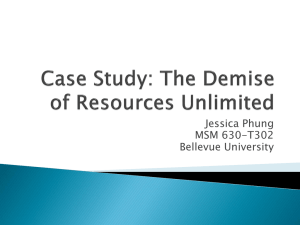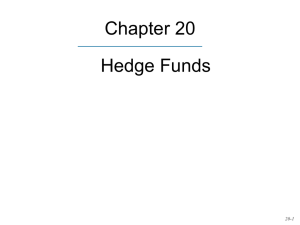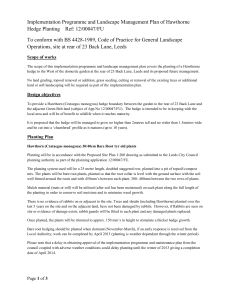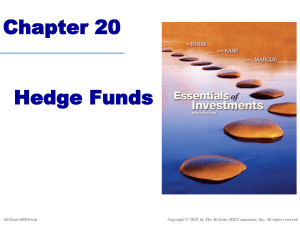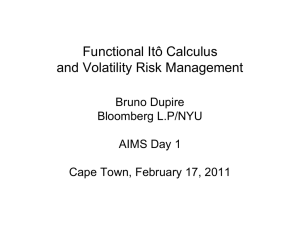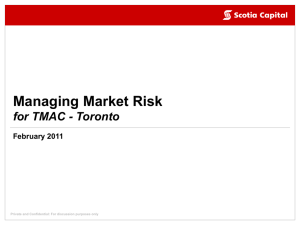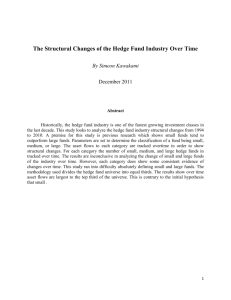as a PDF - Hedge Fund Fundamentals
advertisement
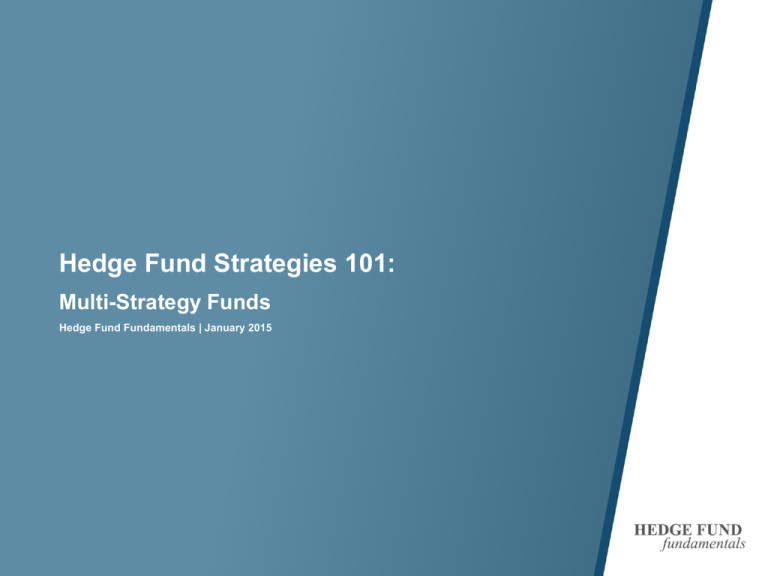
Hedge Fund Strategies 101: Multi-Strategy Funds Hedge Fund Fundamentals | January 2015 Introduction Hedge funds offer qualified investors a unique partnership, with the ability to invest alongside them. While hedge funds first began as a way to offer investors a balanced - or market-neutral – approach to investing, the methods for delivering returns have evolved through the years. This presentation provides a brief overview of some of the strategies used by hedge funds in the marketplace today. Topics: • Investment Strategies • Multi-Strategy Funds • New Hedge Fund Partnerships • Resources 2 1 Investment Strategies Hedge funds offer investors a broad range of investment options. No two hedge funds are identical, but funds can be categorized broadly by the type of strategies they employ. While the individual investment decisions made by each fund vary, hedge funds are united by the same fundamental goals: • Portfolio Diversification- Prevents over-concentration in specific assets. • Risk Management – Helps anticipate and avoid volatility in the marketplace • Reliable Returns Over Time – Provides opportunities for asset growth 3 2 Multi-Strategy Funds Investment managers maintain a variety of processes to arrive at an investment decision, including both quantitative and fundamental techniques. Strategies can be broadly diversified or narrowly focused on specific sectors and can range broadly in terms of levels of net exposure, leverage, holding period, concentrations of market capitalizations and valuation ranges. According to the Preqin 2014 Report on Hedge Funds, multi-strategy funds account for 9% of all assets managed across the direct hedge funds on the Preqin database. Various strategies are employed in a multi strategy fund. Some examples are: convertible bond arbitrage, equity long/short, statistical arbitrage and merger arbitrage Source:2014 Preqin Global Hedge Fund Report 4 3 Institutional Investors Seeking Out New Hedge Fund Partnerships According to Preqin’s 2014 Global Hedge Fund Report, investors expect to increase hedge fund allocations to their existing portfolios over the next 12 months.* Beyond multi-manager funds, public pension funds are the most active type of institutional investor seeking new hedge funds, with the proportion of the total number of fund mandates issued by this group rising throughout the year. This is in line with recent growth trends, which indicate that in 2007, around 196 public pension funds invested in hedge funds - today that number is around 377. The accompanying chart outlines how investors are expected to allocate – by strategy – over the next 12 months.** Source: 2014 Preqin Global Hedge Fund Report **Data for 2015 will be updated as soon as published. 5 4 Resources: For more information on hedge fund strategies, visit: 1. Managed Funds Association or www.managefunds.org 2. Hedge Funds 101 3. Hedge Fund Strategies: An Overview of the Various Investment Strategies Offered by Hedge Funds in the Marketplace Today 4. Hedge Fund Research Strategy Definitions 6
